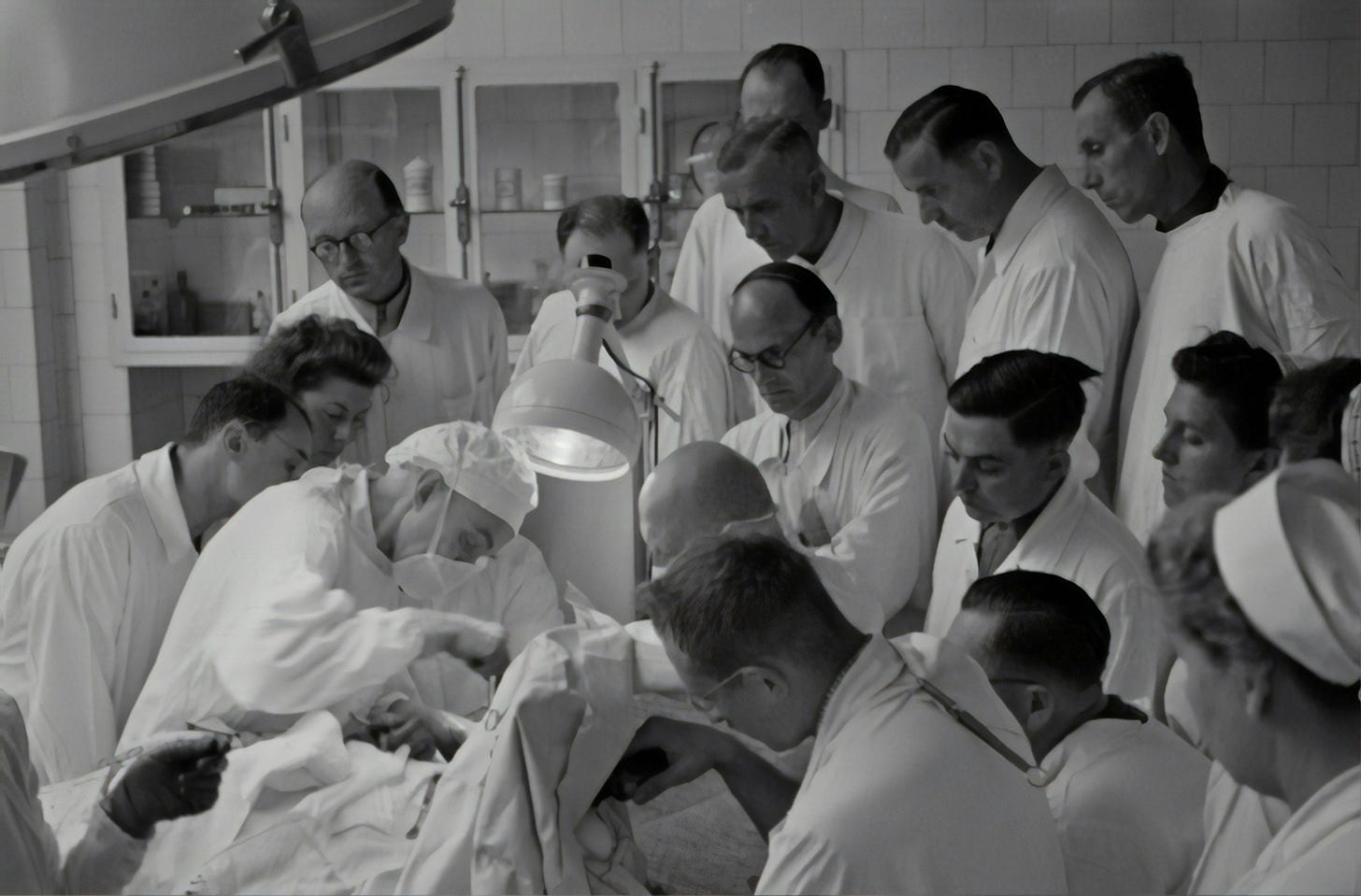TikTok Gave Me Cancer: The Algorithm's Catch-22
A new form of self-harm I'm unwillingly participating in
For about two weeks straight I was sure that I had colon cancer.
After watching Kate Middleton’s announcement where she admitted her public absence was due to a cancer diagnosis, the media began reporting on the video. Then they began reporting on the fact that cancer rates are rising, globally, among younger people. That was all I needed to be sent into an anxiety-induced panic.

“I cried on my toilet last week because I just kept thinking, ‘What if I die, what if my fiancé dies? What if I have kids and don’t get to see them grow up?’" My friend said over a morning coffee after I cautiously brought up my fears, surprised that she shared the same sentiments.
“My 20-year-old sister is convinced she has colon cancer,” another friend said as we made our way across town on the bus.
Talking about it must have signaled to the algorithm that I was saying “Yes, more of that please! More cancer videos!” because I logged onto social media and saw that one of my favorite YouTubers had leukemia. Ninja had skin cancer, and all of this seemed more and more of a sign from the universe: I had been dying from colon cancer and had had no idea until now.
The TikTok algorithm feels like it’s reading our minds sometimes. “It’s astonishingly good at revealing people’s desires even to themselves,” Ben Smith wrote for an article in The New York Times where he reported on a document revealing TikTok’s algorithm.
The app’s ultimate goal? To obtain daily users. To do this, it optimizes two metrics: retention and time spent. Although the algorithm is programmed so that similar but not repetitive content is shown to users, it doesn’t feel that way as an active user.
One video on cancer leads to another leads to another, and TikTok circulates information at such a rapid rate that for someone with anxiety, the algorithm can mold entirely to your fears, repeating them, softening your brain towards them, and convincing you it’s the universal truth when reality is much different. Just ask your friends and family if they’ve heard of that thing you’re sure has taken over the world and they won’t have even heard of it most likely.
But social media has become our world and shared our thinking of it. It can convince an already impressionable person that yes, that stomach pain they had after eating a high-fiber food is in fact, cancer. That weird way you hold your arms to your chest when you sleep is a certain sign of ADHD.
An article in a journal on Cognitive Research calls this the ‘Illusory Truth Effect’ where a person is conditioned to believe a piece of information through repetition, even if it’s not true.
Every social media app has its own pit of despair to fall into and we are just curious enough creatures to keep giving into it time and time again. Going on LinkedIn ensures you’ll never feel hopeful about getting a job amid massive layovers, a shitty job market, and an application system that’s failing job seekers. Everyone on TikTok has cancer. And Reddit boosts threads detailing the worst of relationships, making me believe everyone is keeping a very disturbing secret from their partner, so why wouldn’t mine?
Frank Bruni, a journalist, in a New York Times article, ‘How Facebook Warps Our Worlds,’ talks about our use of social media as “not so much agents as accomplices, new tools for [our] ancient impulses.” We’re creatures who search for patterns, who create communities of like-minded thinkers, and who are biased, always looking for information that backs up our views.
In that case, this issue isn’t entirely Zack’s fault. It’s not Mosseri’s or Musk’s. I’m in part to blame. It’s collectively all of our fault for feeding technology in a way that only seeks to hurt us
Social media can be a dangerous self-harm tool when put in the hands of those struggling with mental health, and it takes a lot of self-discipline to tear yourself away from something that’s designed to keep you there. I consider it self-mutilation of the brain and the spirit that we aren’t fully equipped to combat, because we hardly know that we’re doing it.
If you want a simplified picture of the state of things, here it is: Yes, there has been an increase in global cancer rates in younger people. The job market is strong at the moment but is in a “cooling” era, meaning that frantic job hirings have more or less settled, so it may feel like there are no jobs. And climate change is progressively getting more dire.
But we were never meant to process trauma at the rate we are now, and research is finally catching up with this fact: social media is making our mental health worse.
I went and got my bloodwork done, in the end, to see if there was any truth to my fears. My bloodwork ended up perfect. But do I still wonder if I have cancer even though there’s nothing hinting at that fact aside from the prevalence of those videos on my feed? No, not really. But anxiety doesn’t follow logic, after all.
Further reading:
How Facebook Warps Our Worlds - Frank Bruni for the New York Times
Teens Turn to TikTok in Search of a Mental Health Diagnosis - Christina Caron for the New York Times
TikTok Gave Me Autism: The Politics of Self Diagnosis - Alexander Avila on YouTube
Social Media Algorithms Warp How People Learn from Each Other - William Brady for The Conversation




